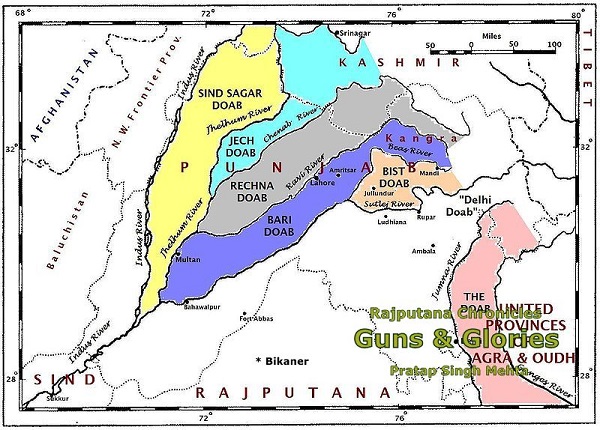Was Bikaner founded by defeating the Baluchi forces?
#Baluchistan is in news today for good reasons. Now read, how is it connected to founding of Bikaner in 15th century?
Around mid-15th century, the uninhabited northern territory of Janglu was constantly under attack from wild Baluchi tribes. The terrain was devastated and many Sankhlas (Jat tribe) had left for greener pastures. Nap Sankhla, the tribal chief, approached Rao Jodha (founder of Jodhpur) for help, “If you so desire, you can occupy Janglu and free us from Baluchis”.
Baluchi tribes. The terrain was devastated and many Sankhlas (Jat tribe) had left for greener pastures. Nap Sankhla, the tribal chief, approached Rao Jodha (founder of Jodhpur) for help, “If you so desire, you can occupy Janglu and free us from Baluchis”.
Rao Jodha liked this suggestion and ordered his son, Prince Bika, to proceed and establish new kingdom. Bika took with him his uncle Kandhal, trusted Dewan #Bachhraj and others as his advisors to establish a new kingdom.
The region that is #Bikaner today, was a barren wilderness called “Janglu Desh”. The north-western territory of Rajputana, known by the name Janglu since Mahabharata times, was inhabited by Jat clans ruled by their own chiefs and largely governed by their own customary law.
 According to Capt James Tod, the spot which Rao Bika selected for his capital was the birthright of a Nehra Jat, who would only concede it for this purpose on the condition that his name should be linked in perpetuity with its surrender. Naira, or Nera, was the name of the proprietor, which Bika added to his own, thus composing the name of future capital, Bikaner. However, the English who ruled India also referred to it as Bikanir.
According to Capt James Tod, the spot which Rao Bika selected for his capital was the birthright of a Nehra Jat, who would only concede it for this purpose on the condition that his name should be linked in perpetuity with its surrender. Naira, or Nera, was the name of the proprietor, which Bika added to his own, thus composing the name of future capital, Bikaner. However, the English who ruled India also referred to it as Bikanir.
Gradually the conquered area was built up into a formidable state. The deserted terrain was repopulated; the small army with which Rao Bika had set out grew in size and strength. Bachhraj was appointed as Dewan (Prime Minister) of the newly founded state with the title of ‘Par Bhume Panchanan’ (a person with the supremacy & prowess of Lord Shiva and Lion).
It is interesting to note that, later in 1573, on the advice of Dewan #KaramChand #Bachhawat, great grandson of Bachhraj and a master strategist, Rao Rai Singh of Bikaner expanded his kingdom up to Harappa in Sindh (Sindhu Desh) by defeating the forces of Baluchis. However, due to humanist attitude of Karam Chand, the captured Baluchi prisoners of war were properly clothed, fed and returned to their homes with Hindu caretakers.
